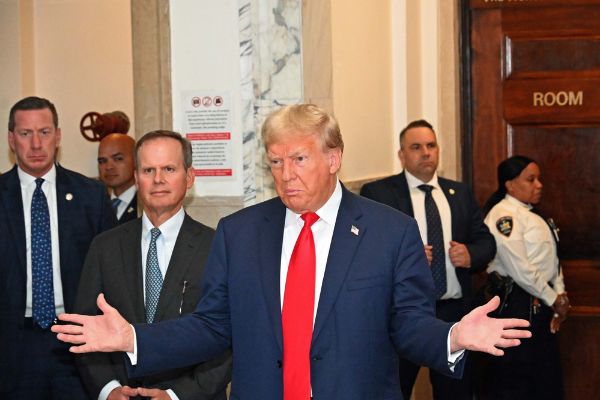Boston University law professor Jed Handelsman Shugerman believes Manhattan District Attorney Alvin Bragg made a “historic blunder” in charging Donald Trump.
After listening to the opening statements on Monday, during which the prosecution claimed that Trump “orchestrated a criminal plan to rig the 2016 presidential election,” Shugerman came to that conclusion.
Prosecutors assert, in essence, that Trump fabricated financial documents in order to rig the 2016 election.
Shugerman noted in the New York Times that the thesis’s faults are apparent: it makes “unprecedented use of state law” and consistently avoids defining an electoral crime or a plausible explanation of fraud.
Just to clear things up, it is acceptable for a candidate to cover the cost of a nondisclosure agreement. Although it is unsightly, hush money is lawful, according to Shugerman.
He went on:
“The prosecutor, Matthew Colangelo, avoided going into specifics during Monday’s opening statement of what constituted illegal election interference, but he did assert that “it was electoral fraud, pure and simple.” Federal or state legislation that is pertinent does not characterize filing infractions as fraud. It is a legal and tactical error to refer to it as “election fraud,” as this exaggerates the case and leaves the jury with expectations that the prosecution is unable to satisfy.”
Shugerman claims that the case has “three red lights raising concerns about selective prosecution,” all of which have to do with the unique legal theory that the prosecution is using against Trump and for which there is no prior case law.
Shugerman noted, “It is natural to question if this is more about Manhattan politics than New York law, eight years after the alleged crime happened.” “This case should serve as a wake-up call to larger injustices committed by American prosecutors.”
“This case remains an embarrassment of prosecutorial ethics and appears to be a case of selective prosecution,” he continued.
Shugerman acknowledged that the judicial process should go as it naturally would, but he still thought Trump may win.
“The prosecutors might not secure a conviction at all if Monday’s start is a preview of overblown claims, inaccurate legal theories, and repeatedly ignored difficulties,” he stated.
Jonathan Turley, a professor at George Washington Law School, had similar opinions on the case.
Turley called Bragg’s decision to pursue the lawsuit “an embarrassment” and expressed his “utter disbelief.”






